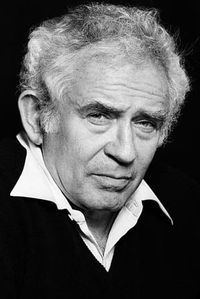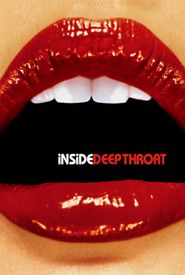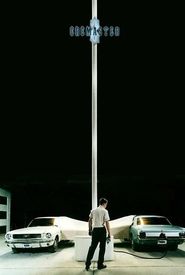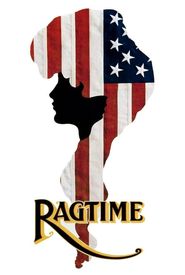Norman Mailer, a Brooklyn-born and -bred writer, fought for the "heavyweight championship" of American letters after Ernest Hemingway's death in 1961. Despite never writing the Great American novel, Mailer was a colossus of American culture and literature in the 1960s, '70s, and '80s. He died in 2007 at the age of 84, towering above all other American writers of his and subsequent generations, according to his New York Times obituary.
Mailer was a primal life force whose writing elucidated the human condition among America and Americans better than any of his contemporaries for more than three decades. He likely will rank with Herman Melville and Hemingway as one of the greatest writers produced by the United States. Although denied the Nobel Prize, Mailer will be the writer that future generations go to understand the America of the late 1940s through at least the early '80s.
Norman Mailer was born in January 1923 in Long Branch, New Jersey, to Fanny (Schneider) and Isaac Barnett Mailer, an accountant. His family was Jewish. Mailer entered Harvard College in 1939 at the age of 16 to study engineering, but fell in love with literature and began his first attempts at creative writing. He took his degree in 1943, was drafted into the Army the following year, and served briefly with a rifle company in the Philippines.
Mailer's experiences as an infantryman would be the genesis of his 1948 novel "The Naked and The Dead", one of the first of the World War II novels written by the men who had fought it. He would never have termed the generation that went to war in 1941-45 "The Greatest Generation", a concept alien to such post-war writers as James Jones, Joseph Heller, or Howard Zinn, all of whom served in the War.
Mailer's novel "The Naked and the Dead" was a bestseller and made its 25-year-old author famous and relatively well-off, financially. His next two novels, "Barbary Shore" (1951) and "The Deer Park" (1954),were artistic and commercial failures. For 10 years after the publication of "The Deer Park" until "An American Dream" (serialized in Esquire Magazine in 1964, rewritten and published as a novel in 1965),Mailer eschewed tackling another novel.
Instead, he turned to journalism and revolutionized what had been one of the ghettos of American letters. If there had been no Norman Mailer, perhaps there would have been a "New Journalism", but it would have been poorer as he was its greatest exponent. "New Journalism" was a moniker hung on a particularly personal type of reflection added to the pedantic Who, What, Where & How? of traditional reporting.
Mailer injected himself into the story and wrote about how he was affected by events. His seminal article about the 1960 Democratic National Convention in Los Angeles, "Superman Comes to the Supermarket", might very well be considered as the starting point of the New Journalism. The article was published in the November 1960 issue of Esquire Magazine.
In an American society that is still enthralled to Victorian-era concepts of class, Mailer's achievement was looked down upon. Rather than being hailed for revolutionizing American letters, Mailer was treated patronizingly by the Literary Establishment. Yet, the serious literary novel now is as nearly dead as all the Cassandras of the 1960s and '70s prognosticated, replaced by "non-fiction" memoirs, in which writers no longer hide behind fictive personas to tell stories, but take full-credit for living lives as full of foul incidents as any novel ever published.
Norman Mailer, who longed to write the Great American novel, likely must bear the lion's share of responsibility for the death of the novel and the rise of the confessional "non-fiction" book, as he elevated "mere journalism" into an art form. Reporting became an art when Mailer married his beautiful writing with naked confession that made him a world-class celebrity in the 1960s and '70s, featured as a regular staple on television talk shows.











































